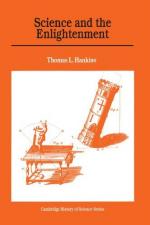
|
| Name: _________________________ | Period: ___________________ |
This test consists of 5 multiple choice questions, 5 short answer questions, and 10 short essay questions.
Multiple Choice Questions
1. In the hands of ________, history led not to an understanding of God's will but rather to an understanding of human nature.
(a) Boyle.
(b) Kant.
(c) D'Alembert.
(d) David Hume.
2. In Chapter 3, whose book described demonstration experiments and gave detailed instructions for making and using the apparatus, but unlike the Dutch physicists, he attempted to create a single rational systematic philosophy, after the model of Leibniz?
(a) Desaguliers.
(b) 'sGravesande.
(c) Chatelet.
(d) Wolff.
3. What was the name of the philosopher who had a passion for humanity, a desire to "do good," and a penchant for reform, according to Chapter 1?
(a) Maupertuis.
(b) Newton.
(c) Descartes.
(d) Condorcet.
4. All of the following English philosophers had shown convincingly that knowledge about the physical world could not be obtained from first principles without resort to experiment except for whom?
(a) Boyle.
(b) Newton.
(c) Bacon.
(d) Locke.
5. Chapter 1 states that the "geometric spirit" noted by ________ ensured that the same progress would occur in our knowledge about nature.
(a) Boyle.
(b) Locke.
(c) Fontenelle.
(d) Newton.
Short Answer Questions
1. Who stated in 1665 that "Analysis...seems to belong no more to Mathematics than to Physics, Ethics or any other Science"?
2. What area of study in the Middle Ages had been the domain of those truths that could be found through the use of reason alone without the revelation of the Bible?
3. The "Philosophical Letters" was a product of Voltaire's visit to ________ according to Chapter 2.
4. Who came out in support of vis viva in 1722 and concluded that "what was before only a dispute of words now becomes a dispute about real things"?
5. What was the name of the problem of finding the shape of a surface of maximum area for a perimeter of given length as found in Chapter 2?
Short Essay Questions
1. What were the two necessary ingredients for the improvement of astronomical tables? Explain.
2. Discuss how nature and reason tied into the Enlightenment.
3. Discuss the two concepts that were studied in rational mechanics during the Enlightenment.
4. Discuss the ideology of the Enlightenment on natural philosophers. Who was France's main natural philosopher? Explain.
5. Discuss Charles Francois de Cisternai Dufay and his impact in electrical science.
6. What did the French call the eighteenth century? Explain.
7. Who coined the term "Scientific Revolution" and who was this person? What was the Scientific Revolution?
8. How did the eighteenth century define analysis? Explain.
9. What prompted the versions of the mechanical philosophy in the seventeenth century? Give an example.
10. Discuss the product of the Philosophical Letters.
|
This section contains 890 words (approx. 3 pages at 300 words per page) |

|




